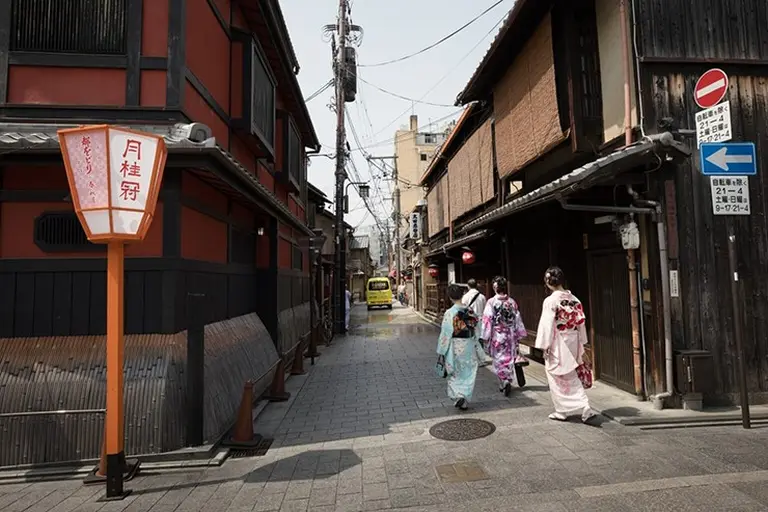Tucked away in the heart of the Eastern Himalayas, Bhutan is unlike any other travel destination in the world. Known as the “Kingdom of the Thunder Dragon,” it offers a rare blend of untouched natural beauty, deep-rooted Buddhist traditions, and a philosophy that prioritizes Gross National Happiness over GDP. But traveling to Bhutan isn’t like visiting just any country—it requires preparation, mindfulness, and a willingness to slow down. Whether you’re planning to hike to the iconic Tiger’s Nest or join in the vibrant Paro Tshechu festival, this guide will help you navigate Bhutan’s unique rules, customs, and travel essentials so you can enjoy a smooth and deeply meaningful journey.
Essential Travel Tips for Visiting Bhutan
Bhutan is a one-of-a-kind destination where spirituality, nature, and tradition harmoniously coexist. But before you pack your bags, here are some important things to know to ensure your trip is smooth, respectful, and rewarding.
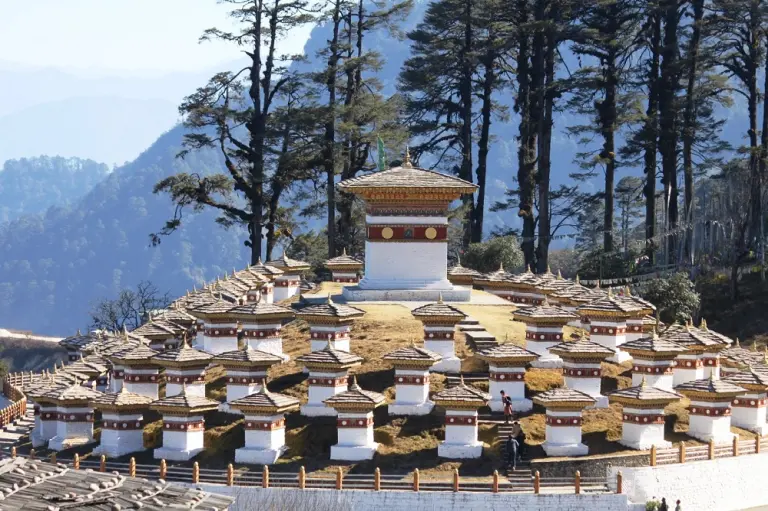
>> Traveling to Bhutan: What you need to know
1. No Smoking in Public Spaces
Bhutan strictly prohibits tobacco use in public areas, and importing cigarettes is highly restricted. If you’re a smoker, be aware that customs inspections are thorough, and heavy fines may apply. Smoking is only allowed in designated areas and never inside hotels or temples.
2. Respect the Culture and Religion
Bhutanese society is deeply spiritual, with Buddhism embedded in daily life. Always dress modestly—cover your shoulders and knees, especially when visiting dzongs (fortresses), temples, or during festivals. Photography is strictly forbidden in sacred places unless signs indicate otherwise.
3. Pack for Unpredictable Weather
The Himalayan climate can shift quickly—sunshine one moment, cold winds the next. Especially if you’re planning to hike or trek, pack multiple layers, a waterproof jacket, and comfortable hiking shoes. In higher altitudes, temperatures drop fast after sunset, even in spring and fall.

4. Currency and Payments
The local currency is the Bhutanese Ngultrum (BTN), which is pegged to the Indian Rupee (INR). US dollars are widely accepted in hotels and larger shops, but credit card usage is limited, especially in rural areas. Always carry some local cash for entry tickets, small purchases, or tips.
5. Stay Healthy and Insured
Due to the mountainous terrain, travelers often experience motion sickness or fatigue—especially when traveling by road. Bring motion sickness pills, altitude medicine, and always purchase international travel insurance that covers emergency evacuations.
6. Bhutanese Cuisine: Flavorful but Fiery
The national dish, Ema Datshi (chili and cheese stew), is just the tip of the iceberg. Bhutanese food is spicy, aromatic, and may not suit everyone’s taste. Try local dishes with an open mind, but it’s a good idea to carry some dry snacks or instant noodles just in case.
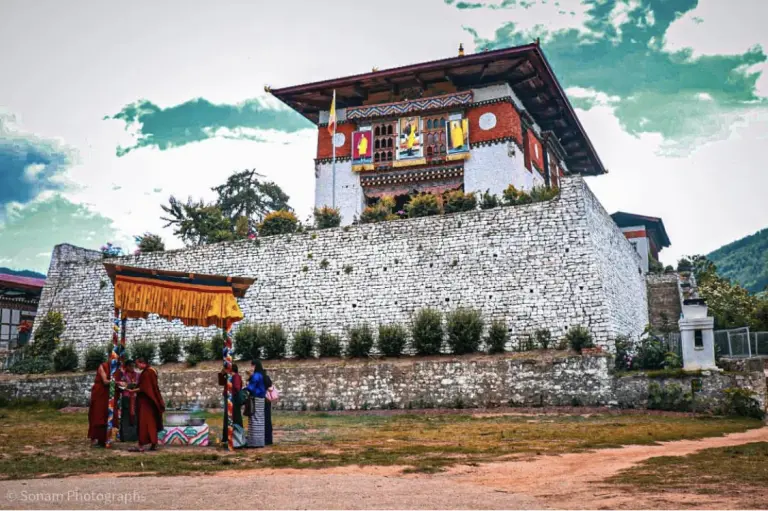
>> Signature Dishes of Bhutanese Cuisine
7. Best Time to Visit
The most pleasant months are March to May (spring) and September to November (autumn). During these seasons, the skies are clear, festivals are abundant, and the natural scenery—from blooming rhododendrons to golden rice terraces—is absolutely breathtaking.
8. Adopt the Bhutanese Way of Life
Life in Bhutan flows at a slower, more mindful pace. Locals are gentle, courteous, and deeply connected to nature. Avoid rushing—pause, breathe, and immerse yourself in the kingdom’s unique rhythm. This isn’t just a trip—it’s a chance to reconnect with what truly matters.
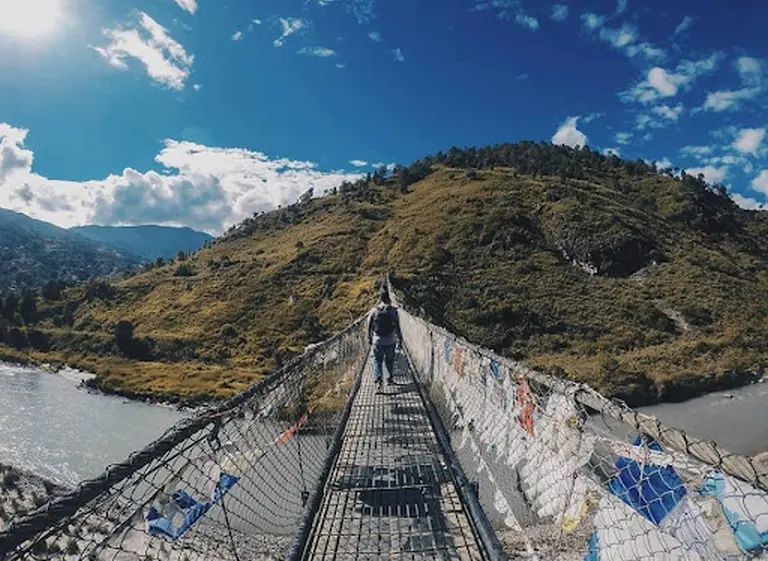
9. Plan Around Festivals
Festivals like Paro Tshechu and Thimphu Tshechu are vibrant spectacles of dance, color, and tradition. These events are spiritual and social highlights of the year—but also attract thousands of tourists. Be sure to book your tour and accommodations months in advance if you plan to attend.
10. Eco-Conscious Travel
Bhutan takes environmental protection seriously. As the world’s only carbon-negative country, it bans single-use plastics and enforces strict waste management. Bring your own reusable water bottle and avoid littering at all costs—this is not just a rule but a core value.
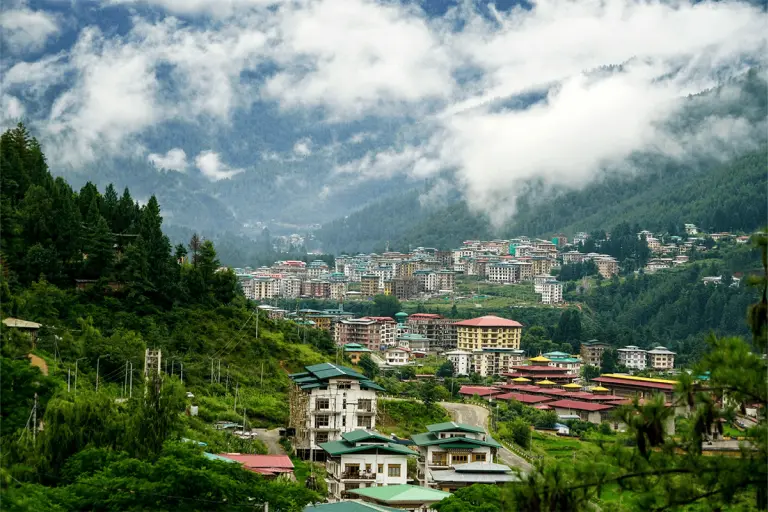
>> Unique cultural traits of the land of the Thunder Dragon, Bhutan
Pro Travel Advice for Visiting Bhutan
Want to make the most out of your Bhutan journey? Here are insider tips from seasoned travelers:
- Book with a reliable, government-approved tour operator who understands Bhutan’s travel regulations and handles all the logistics.
- Reserve early—especially if you’re visiting during peak seasons or religious festivals.
- Embrace the unfamiliar—let go of your modern-day expectations and be open to Bhutan’s mindful, minimal lifestyle.
- Always carry a refillable water bottle, basic medications, a warm jacket, and a power bank for your phone or camera.
- Disconnect to reconnect—internet access is limited in many areas. Instead of focusing on Wi-Fi, focus on being present.
- Treat people, nature, and traditions with the utmost respect. You’re not just a tourist—you’re a guest in one of the world’s last remaining Himalayan kingdoms.
- Don’t wear shorts or sleeveless tops in temples, dzongs, or public spaces.
- Avoid pointing at Buddha statues, climbing sacred monuments, or entering restricted religious zones.
- Bhutan isn’t a shopping destination. Forget souvenir malls—what you’ll take home are memories, not merchandise.
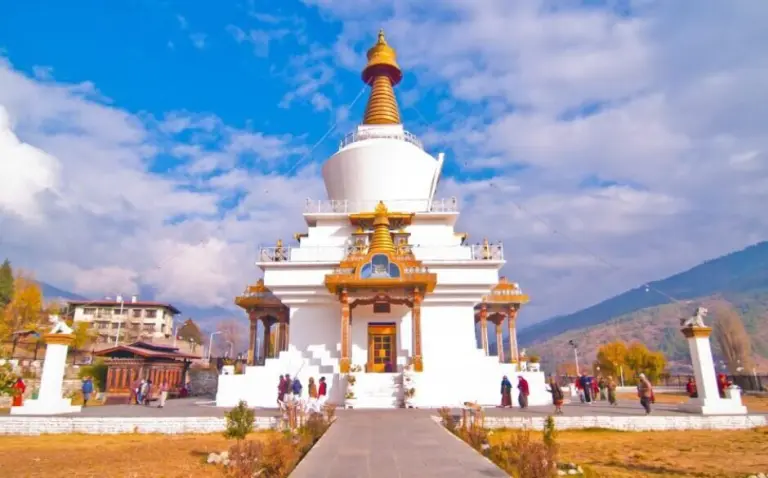
Why Stay Longer in Bhutan?
Bhutan is not a place to check off a bucket list—it’s a land to feel, breathe, and experience. From spiritual hikes to ancient monasteries perched on cliffs, from tranquil farm stays to conversations with monks under fluttering prayer flags—every moment here teaches something.
So don’t rush. Spend an extra day meditating at Tiger’s Nest Monastery, sipping butter tea with locals, or watching the fog roll over Phobjikha Valley. The longer you stay, the deeper Bhutan reveals itself—and the more you’ll carry its peace within you.
>> Must-Visit Attractions in Bhutan – Unlock the Magic of the Land of Thunder Dragon!
Ready to slow down and discover a different kind of luxury? Let Bhutan show you the magic of simplicity.






